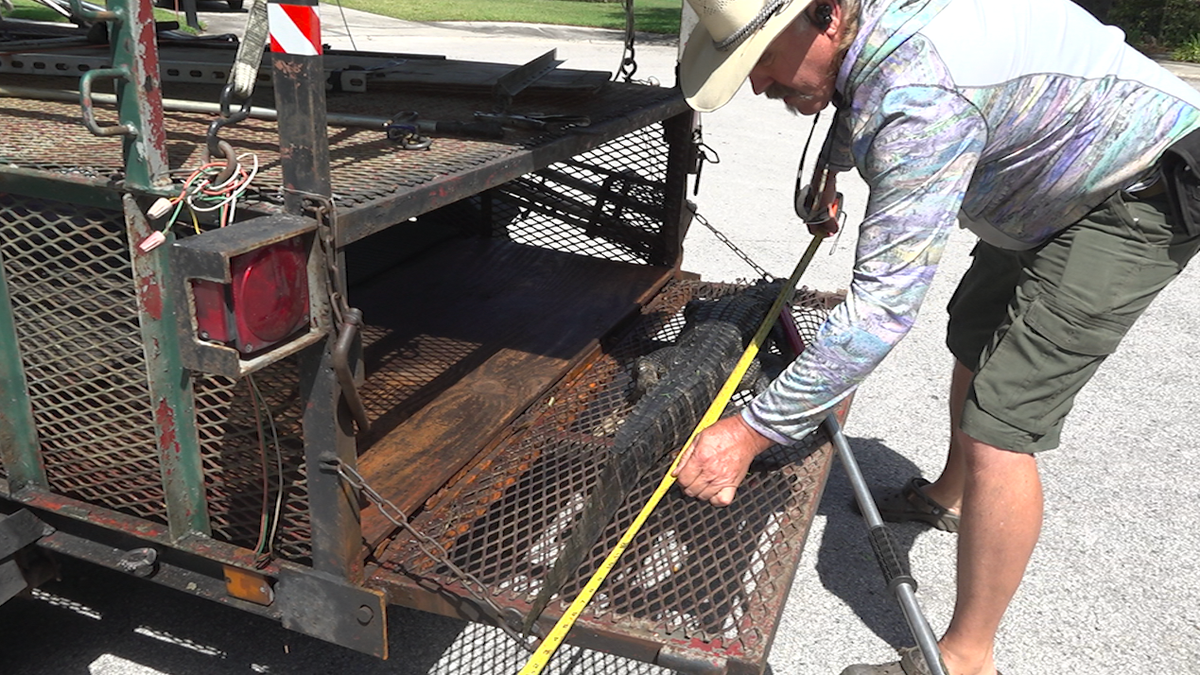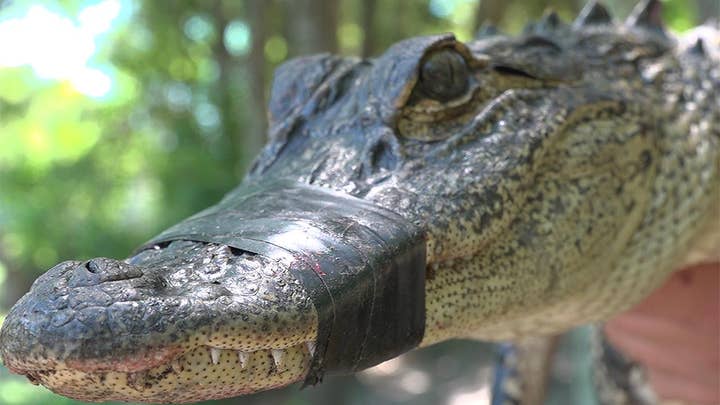-
TAMPA, Fla. - With April comes the start of alligator mating season, meaning more gators are on the prowl in some unlikely places in Florida and the rest of the coastal South.
Warmer weather also revs up the prehistoric predators’ metabolism, making them more active and aggressive as they hunt for prey and a mate.
The Florida Fish and Wildlife Conservation Commission (FWC) says over 7,000 nuisance alligators had to be killed or relocated last year, compared to 6,700 in 2017. Although the chances are slim, only 1 in 3.2 million to be exact, six people on average are attacked by the animals every year.
Areas with the highest removal numbers are in and around central Florida. Tampa topped the list in 2017 with 181 nuisance gators but was topped last year by Sarasota, which tallied 205.
Generally, an alligator may be deemed a nuisance if it is at least four feet in length and residents believe it poses a threat to people, pets or property; the FWC says their removal does not have a significant impact on the state's alligator population.
Nuisance gators larger than four feet are usually sold to alligator farms or harvested if a trapper doesn’t have a special permit to take them alive and gators smaller than four feet are released back into the wild.

State alligator trapper Robb Upthegrove measures a nuisance alligator captured in Tampa, Fla. (Fox News)
Once an endangered species, they're now federally protected, meaning only FWC-contracted trappers can retrieve them after residents report sightings using the Nuisance Alligator Hotline at 866-FWC-GATOR (866-392-4286).
Once reported, the state issues a permit for a trapper to remove a suspicious gator.
State alligator trapper Robb Upthegrove has been handling live alligators for over eight years and receives removal calls around the clock.
“This one here came from a residence in Baum, the larger gator came from a Walmart in Wimauma, the smaller gator came from a lake in Auburndale,” he said as he took inventory of his catches from the past 24 hours.
An estimated 1.3 million alligators now roam the waterways in every one of the Sunshine State’s 67 counties.
“Pretty much any body of water that's going to be in Florida, you might come across an alligator at some point,” said Karina Paner, manager of Croc Encounters Reptile Park & Wildlife Center, which houses dozens of alligators reported as a nuisance and rescued by the center. “All the waterways are connected…a lot of the lakes and ponds in neighborhoods are connected through piping, so they travel through that.”
But Paner reminded residents to keep that in perspective.
“They're not really bothering us as much as we're kind of taking over their space,” she added. “They're not coming out to attack us…they're doing what they've always done even before we were here…”
Paner said while many Floridians have learned to coexist, the threat is always there—especially if people feed them.
“…You are teaching the alligator to lose its natural fear of people and then they start approaching people for food,” she said. “That’s when accidents happen.”
In addition to being illegal, Upthegrove says feeding alligators also hurts trappers’ chances of catching them.
Sarah Maccollum of Brandon has two kids, but no fence between her home and a pond a few yards away.
“…We’re just a little nervous with the gator being out here and the kids being outside all the time,” she told Fox News.
Her neighbor, Porsche Davis, called the Nuisance Alligator Hotline Wednesday to report a nearly six-foot alligator that had repeatedly been seen near the water’s edge. In a community with dozens of small children and animals, she said she didn’t want to take any chances.
“Water equals gator in Florida…so that’s a big concern,” she said.
Fellow Brandon resident Linda Haas’ home is feet away from a pond known to have alligators.
“Gators can climb a fence...I have little dogs under five pounds so it would be just an appetizer for them,” she told Fox.

(The state is encouraging residents to call its Alligator Nuisance Hotline if they're concerned about a gator getting too close.)
Since 1988, there have been 18 fatal attacks on humans involving an alligator in Florida and two since 2016, according to the FWC. The two most recent incidents occurred during mating season.
Last June, an alligator killed a 47-year-old South Florida resident, Shizuka Matsuki, while she walked her dogs near a lake in Davie, Fla.
In June 2016, 2-year-old Lane Graves was dragged into the water and killed by an alligator near the shore of a Disney World resort.
The FWC recommends not swimming during dusk or dawn, an alligator’s most active hours, keeping animals on a leash and away from water and keeping a safe distance away from the animal.
“Enjoy them from a distance because we can enjoy them living in Florida,” said Paner. “We can live amongst them.”
Until the season ends in June, Upthegrove said he and other state trappers will continue responding to reports as quickly as they can to help keep the public safe.





















